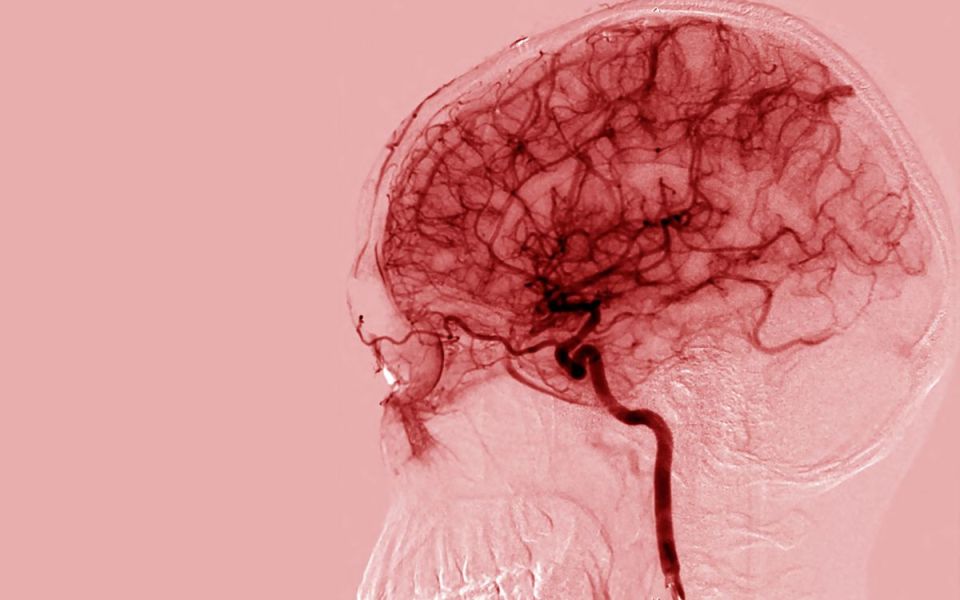Vascular Dementia: Causes, Symptoms, Risk Factors, and Treatment Options

There’s an old saying: “The brain is the most important organ in the body, according to the brain.” However, this seems to be fairly accurate in terms of what we spend time and resources doing. We spend a large amount of resources feeding, warming, and maintaining the brain. The body uses blood to move those resources. When the vessels carrying that blood (called the vascular system) fail to bring enough blood to the brain, we can suffer from vascular dementia [1, 2].
Vascular dementia is the second most common form of dementia in the U.S., making up about 15-20% of cases [1, 3]. Onset may be gradual but is frequently sudden when following a stroke [2]. Vascular dementia can have wide-ranging brain effects, including memory loss, brain slowing, depression and anxiety, motor system problems, and issues with problem-solving, logic, and judgment [1, 2]. The main risk factor for developing vascular dementia is stroke, which increases the chance of getting the disease by up to 80%, depending on age [4]. Other risks include high blood pressure, diabetes, smoking, genetics, age, high cholesterol, and metabolic syndrome [1, 3].
As far as brain disorders go, vascular dementia is one of the easier ones to understand. First, the blood vessels leading to or within the brain fail to deliver enough blood due to clotting or other issues [1]. Reduced blood flow leads to damage in the brain; low oxygen starves hungry cells, degrading the hippocampus, basal ganglia, and white matter [1, 2]. Dangerous particles like reactive oxygen damage cells and mitochondria, prompting an inflammatory immune response [1, 2]. Brain cells in the hippocampus die, neurons degrade, slow, and are damaged, and cognition declines [1, 2].
There are no cures for vascular dementia [5]. The current best way to protect against the disease is by limiting risk factors: managing cardiovascular disease, high blood pressure, and diabetes [3. 5]. Anti-clotting agents like low-dose aspirin may help those at risk [3]. Keeping physically fit seems to be protective, with a study in Sweden showing highly physically fit women had an 88% reduction in vascular dementia development over 44 years [6]. Clinical Research has found that some medications that target Alzheimer’s also have limited effectiveness in slowing the progression of vascular dementia [3, 5]. We need more clinical trials to find disease-modifying medications [3, 5]. Many brains are needed to help protect our most important organ.
Creative Director Benton Lowey-Ball, BS, BFA
|
Click Below for ENCORE Research Group's Enrolling Studies |
|
Click Below for Flourish Research's Enrolling Studies |
References:
[1] Mossanen Parsi, M., Duval, C., & Ariëns, R. A. (2021). Vascular dementia and crosstalk between the complement and coagulation systems. Frontiers in cardiovascular medicine, 8, 803169. https://pmc.ncbi.nlm.nih.gov/articles/PMC8733168/
[2] Venkat, P., Chopp, M., & Chen, J. (2015). Models and mechanisms of vascular dementia. Experimental neurology, 272, 97-108. https://pmc.ncbi.nlm.nih.gov/articles/PMC4631710/
[3] Skrobot, O. A., O'Brien, J., Black, S., Chen, C., DeCarli, C., Erkinjuntti, T., ... & Ben‐Shlomo, Y. (2017). The vascular impairment of cognition classification consensus study. Alzheimer's & Dementia, 13(6), 624-633. https://pubmed.ncbi.nlm.nih.gov/27960092/
[4] Pendlebury, S. T., & Rothwell, P. M. (2019). Incidence and prevalence of dementia associated with transient ischaemic attack and stroke: analysis of the population-based Oxford Vascular Study. The Lancet Neurology, 18(3), 248-258. https://pmc.ncbi.nlm.nih.gov/articles/PMC6390174/
[5] Farooq, M. U., Min, J., Goshgarian, C., & Gorelick, P. B. (2017). Pharmacotherapy for vascular cognitive impairment. CNS drugs, 31(9), 759-776. https://link.springer.com/article/10.1007/s40263-017-0459-3
[6] Hörder, H., Johansson, L., Guo, X., Grimby, G., Kern, S., Östling, S., & Skoog, I. (2018). Midlife cardiovascular fitness and dementia: a 44-year longitudinal population study in women. Neurology, 90(15), e1298-e1305. https://www.neurology.org/doi/10.1212/WNL.0000000000005290



